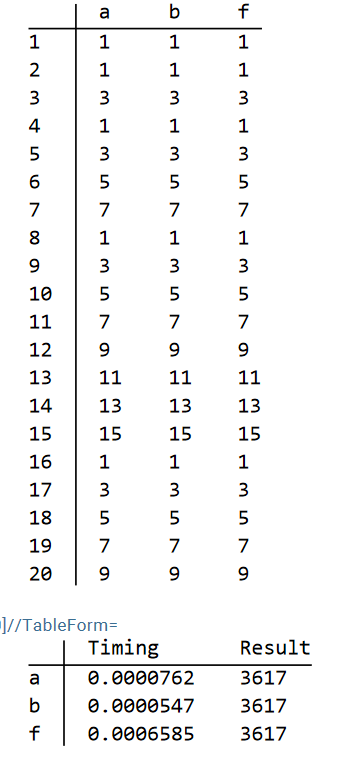I don't think the built-in function RecurrenceTable can handle the kind of recurrence you present in this question. However, the problem is amenable to the approach I discussed in your previous question.
First, observe that the recurrence relation is really a matter of odd and even numbrs; i.e., it is defined one way for odd numbers and only slightly differently for even ones.
Second, write a recursive function based on this observation. Like so:
Clear[a]
a[1] = 1;
a[n_?EvenQ] := 2 a[n/2] - 1
a[n_?OddQ] := 2 a[Floor[n/2]] + 1
Now, it is possible to generate a sequence to any specified length, say 63.
Table[a[i], {i, 63}]
{1,
1, 3,
1, 3, 5, 7,
1, 3, 5, 7, 9, 11, 13, 15,
1, 3, 5, 7, 9, 11, 13, 15, 17, 19, 21, 23, 25, 27, 29, 31,
1, 3, 5, 7, 9, 11, 13, 15, 17, 19, 21, 23, 25, 27, 29, 31,
33, 35, 37, 39, 41, 43, 45, 47, 49, 51, 53, 55, 57, 59, 61, 63}


RecurrenceTableit says that the equations must be in the form ofa[n + i]whereiis any fixed integer. Based on that, I would guess that your problem cannot be defined usingRecurrenceTable. Idk if this helps, but you could define the relation like this:a[1] = 1; a[n_] := If[EvenQ[n], 2 a[n/2] - 1, 2 a[(n - 1)/2] + 1]and that will at least get you the values for each n value. $\endgroup$RecurrenceTable? $\endgroup$